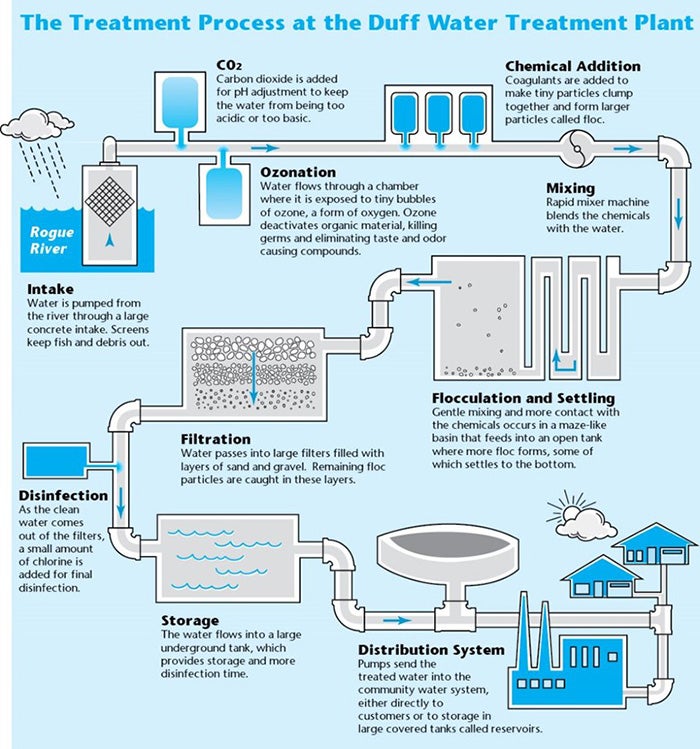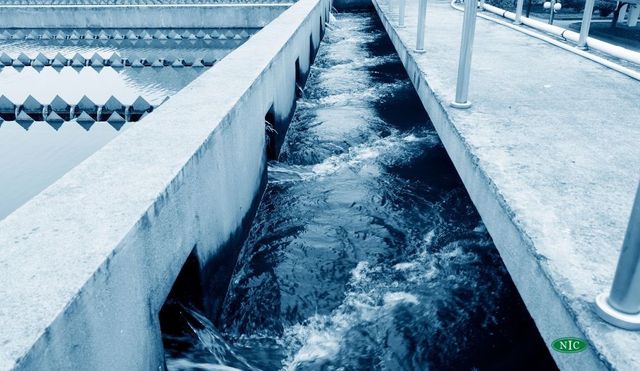Discovering Water Technology Startups: Just How They Change Sustainable Solutions
Water Technology startups are becoming crucial players in the pursuit for lasting remedies to worldwide water problems. These companies take advantage of cutting-edge modern technologies to boost water efficiency and monitoring. Their contributions address pressing challenges such as shortage and contamination. Nevertheless, despite their potential, they face numerous obstacles that can affect their success. Understanding these dynamics drops light on the future of water sustainability and the function these start-ups might play in shaping it.
The Value of Water Technology in Today's Globe
As international water shortage magnifies, the significance of water Technology ends up being significantly evident. Water Technology plays a crucial duty in attending to the difficulties positioned by decreasing fresh water sources and increasing need. It includes a wide series of technologies, including advanced purification systems, wastewater treatment modern technologies, and wise irrigation options. These developments not only boost the effectiveness of water usage yet also promote lasting practices throughout various markets, including agriculture, industry, and metropolitan advancement.
In addition, the relevance of water Technology extends beyond resource monitoring. It cultivates durability against climate adjustment impacts, such as dry spells and floodings, by offering flexible remedies for water conservation and management. In addition, it supports public health and wellness by ensuring accessibility to tidy and safe drinking water. As the globe deals with expanding water-related obstacles, the assimilation of advanced water modern technologies is crucial for promoting lasting growth and securing water availability for future generations.
Cutting-edge Solutions From Water Tech Startups
While typical methods to water monitoring have actually offered their objective, a new wave of water technology start-ups is changing the market with cutting-edge services (Water Technology Startups). These business leverage sophisticated modern technologies to attend to pushing water concerns, such as deficiency, contamination, and ineffective distribution. Many startups use fabricated intelligence and maker learning to enhance water usage and predict demand, resulting in even more sustainable practices
Additionally, several firms focus on creating sophisticated filtration systems that remove toxins and make water risk-free for usage. Others discover decentralized water treatment innovations, allowing areas to manage their water sources more effectively. Some startups are pioneering clever watering remedies that lessen water waste in farming, promoting environmental preservation.
Case Studies: Effective Water Technology Startups
Countless water Technology start-ups have become leaders in dealing with worldwide water obstacles via innovative approaches. One noteworthy instance is Xylem, which concentrates on water analytics and clever infrastructure to maximize water use and reduce waste. Their services have actually been executed in numerous municipalities, demonstrating significant renovations in water monitoring performance.
One more effective start-up, No Mass Water, has actually established solar-powered hydropanels that extract water vapor from the air, providing lasting drinking water in deserts. Water Technology Startups. This Technology has been deployed in a number of nations, guaranteeing communities have accessibility to tidy water
AquaVenture Holdings runs a diverse portfolio of water-as-a-service services, attending to water scarcity via desalination and wastewater treatment. Their jobs have proven necessary in regions encountering extreme water shortages, showcasing the capacity of cutting-edge water modern technologies to produce lasting, positive influences. These situation research studies highlight the transformative potential of start-ups in the water Technology industry.
The Role of Smart Technology in Water Monitoring
Smart Technology plays a crucial duty in contemporary water administration by leveraging IoT applications to enhance resource use. Information analytics improves efficiency by supplying actionable insights, while remote surveillance remedies enable real-time oversight of water supply. Together, these developments change how water is taken care of, advertising sustainability and operational efficiency.
IoT Applications in Water
As water deficiency and monitoring challenges heighten around the world, the assimilation of Net of Points (IoT) applications has become a critical remedy in enhancing water sources. IoT Technology facilitates real-time surveillance and analysis of water systems, making it possible for a lot more reliable usage and monitoring. Sensors released in various water facilities can track top quality, flow rates, and leakage, offering important information to stakeholders. This information equips consumers and utilities to make enlightened decisions, reducing waste and improving preservation efforts. Additionally, smart watering systems utilize IoT to enhance water shipment for farming, making sure that plants get the correct amount of water at the correct time. On the whole, IoT applications are transforming conventional water administration practices, fostering sustainability and strength in water resource systems.
Data Analytics for Effectiveness
Utilizing information analytics is important for enhancing efficiency in water monitoring. Water Technology startups are increasingly using innovative analytics to maximize source allowance and decrease waste. By examining data from different sources, these start-ups can recognize patterns and trends that notify far better decision-making. For example, predictive analytics can forecast water demand, permitting energies to change supply as necessary, therefore lessening scarcities and excess. Additionally, real-time data processing enables the immediate detection of leakages and inadequacies within distribution systems, significantly reducing operational expenses. In addition, data-driven understandings empower stakeholders to carry out targeted conservation strategies, fostering lasting techniques. Essentially, integrating information analytics right into water administration not only enhances operations yet also promotes long-lasting sustainability in water source usage.
Remote Monitoring Solutions
While traditional water management systems typically deal with ineffectiveness, remote surveillance remedies are changing just how water resources are handled. These ingenious technologies make it possible for real-time information collection and analysis, permitting stakeholders to keep track of water top quality, flow prices, and use patterns from afar. Making use of sensing units and IoT tools, remote surveillance gives immediate insights that assist in aggressive decision-making. This shift not just enhances functional efficiency yet additionally advertises sustainability by lowering water waste and optimizing source allowance. Additionally, remote tracking systems can determine potential problems before they rise, consequently minimizing the risk of contamination or facilities failing. As water Technology start-ups remain to establish these options, the market is poised for substantial advancements in lasting water management practices.
Obstacles Facing Water Technology Startups
Water Technology startups encounter significant challenges that can prevent their growth and success. Secret concerns consist of protecting appropriate funding, maneuvering through intricate regulative atmospheres, and competing in a congested industry. These barriers call for calculated planning and innovation to get rid of.
Financing and Investment Obstacles
Innovation in water Technology holds immense capacity for dealing with global challenges, startups in this sector often deal with significant funding and financial investment obstacles. Many investors continue to be mindful, perceiving the water market as high-risk because of its complex regulative landscape and long development timelines. Furthermore, start-ups often struggle to demonstrate immediate success, which can hinder possible backers. Standard endeavor capital might ignore water innovation, favoring sectors with quicker returns, such as technology or customer products. Securing gives and federal government financing can be lengthy and affordable, further making complex monetary security. Consequently, numerous innovative water Technology startups find themselves in a ragged edge, requiring innovative funding strategies to navigate these economic obstacles and accomplish their objectives
Regulative Compliance Issues
Steering governing compliance is a substantial challenge for start-ups in the water Technology market, as they have to grapple with a myriad of local, nationwide, and worldwide laws. These regulations often include water top quality requirements, environmental protection regulations, and security procedures, which can vary widely across territories. Startups might find it challenging to browse this facility landscape, particularly when scaling procedures or going into brand-new markets. The prices related to compliance can be substantial, diverting resources away from development and item growth. Furthermore, hold-ups in obtaining necessary permits or qualifications can hinder development and market entrance. A durable understanding of governing frameworks is important for these startups to ensure lasting procedures and stay clear of potential legal consequences.
Market Competition Dynamics
As water Technology start-ups arise in a competitive landscape, they encounter many obstacles that can hamper their growth and innovation. Established firms usually dominate the market, leveraging resources and experience to preserve their placements. Start-ups battle with limited financing, which restricts study and development capacities, making it hard to compete on Technology and pricing. In addition, the swiftly advancing nature of water technologies demands constant adjustment, further straining startup resources. Governing hurdles can make complex market entry, as compliance with environmental standards is important yet expensive. Lastly, drawing in competent talent in a particular niche field presents an additional barrier, as bigger companies may offer more enticing employment plans. Consequently, these variables create a complicated environment for water Technology start-ups aiming to be successful.

The Future of Water Technology and Sustainability

The future of water Technology will likely concentrate on integrating man-made knowledge and information analytics to optimize water circulation and use patterns. By harnessing real-time information, companies can anticipate shortages and handle sources much more properly. Moreover, lasting techniques will certainly end up being a keystone of the sector, urging round economies where water is recycled and dealt with. Ultimately, the continued evolution of water Technology will be vital in developing durable frameworks with the ability of satisfying the obstacles posed by climate adjustment and populace development while promoting environmental stewardship.
Regularly Asked Concerns
What Are the Trick Metrics for Assessing Water Technology Startups?
Trick metrics for reviewing water Technology start-ups consist of market capacity, scalability, client purchase expenses, income growth, technology development, governing compliance, environmental effect, competitive advantage, and group experience, all critical for identifying long-term feasibility and success.
How Can People Support Water Technology Innovations?
People can sustain water Technology advancements by purchasing start-ups, promoting for policy modifications, getting involved in community campaigns, sharing expertise concerning sustainable methods, and promoting awareness of water issues with social media sites and regional events.
What Prevail Financing Sources for Water Tech Startups?
Usual financing sources for water tech startups include equity capital, government gives, crowdfunding systems, angel financiers, and company partnerships. These financial methods aid promote innovation and development in sustainable water administration modern technologies.

Which Industries Advantage The Majority Of From Water Technology Advancements?
Industries such as agriculture, energy, production, and local solutions profit substantially from water Technology innovations. These advancements boost water efficiency, minimize costs, and advertise sustainable methods, inevitably adding to environmental preservation and source administration.
Exist Any Regulative Challenges Certain to Water Innovation?
Yes, water Technology faces regulatory challenges, consisting of compliance with environmental criteria, allowing processes, and differing local regulations. These complexities can prevent innovation and slow the application of new modern technologies in the water management field.
Water Technology start-ups are arising as important players in the pursuit for sustainable options to global water concerns. As global water shortage heightens, the relevance of water Technology becomes progressively obvious. Others explore decentralized water treatment modern technologies, permitting areas to manage their water sources more successfully. An additional successful start-up, Zero Mass Water, has click here developed solar-powered hydropanels that extract water vapor from the air, offering lasting alcohol consumption water in arid regions. Their tasks have verified essential in regions dealing with serious water shortages, showcasing the possibility of cutting-edge water technologies to produce long-term, positive effects.